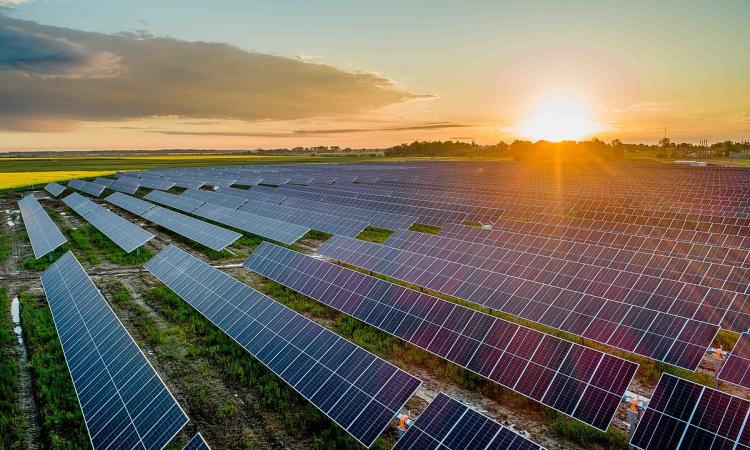
The International Forum for Environment, Sustainability & Technology (iFOREST) organized a major conference last month in Bhubaneshwar to start a dialogue on Odisha’s new Renewable Energy (RE) policy for 2022-30. Odisha’s present RE Policy was introduced in 2016, and is set to lapse at the end of 2022.
The present policy had set a modest target of installing 2,750 MW of RE capacity by 2022. But as of March 2022, only 617 MW has been installed, which is less than 25% of the target. The state is largely reliant on coal to meet its energy requirement.
So far, Odisha has been importing renewable energy, like solar and wind power, from other states to meet its Renewable Purchase Obligation (RPO) set under central government guidance. The RPO target of Odisha for 2022-23 is 11.5%. This means that 11.5% of electricity consumed in Odisha in 2022-23 has to be renewable energy. This target will increase to 43.33% by 2029-30.
The multi-stakeholder dialogue focused on the short-comings of the existing policy and the priorities for the new RE policy to support the growth of the clean energy in the state. The event saw large participation from relevant government departments and agencies, public and private sector companies, NGOs and sector experts.
“Scaling up renewable energy installations in Odisha is essential for sustainable development and climate change mitigation. There is a general misconception that Odisha doesn’t have RE potential. Our analysis shows that Odisha has large RE potential that needs innovative policy to unlock,” explained Chandra Bhushan, President & CEO, iFOREST at the event.
Bhushan further added that “Given the newly notified RPO target of 43.33 per cent by 2029-30, Odisha has to option to either install RE plants within the state or buy from other states. We think Odisha has a lot to gain by installing RE plants within the state. Therefore, we have proposed that the focus of the new RE policy should be 30 GW Renewable Energy by 2030.”
Prior to organizing the conference, iFOREST had undertaken detailed analysis of the RE sector in Odisha and organised seven focused group discussions on the new RE policy, in which over 60 stakeholders from industry, NGOs and government had participated.
At the inaugural session of the conference, Mr. Suresh Chandra Maharana, Engineer in Chief (Electrical), Government of Odisha emphasized, “We are blessed with all possibilities of RE growth, it is time to now harness it. Odisha has been a pioneer in many aspects, and there is no doubt in my mind that Odisha will manage the new RPO requirements.”
“Odisha is growing at a rate faster than India and we have two decades to exponential growth ahead of us. The challenge now is to make this growth sustainable and the new RE policy has to create an enabling environment for this,” said Mr. Shenbagam Manthiram, Chief Executive Officer, Tata Power Central Odisha Distribution Limited at the occasion.
So far, the RE sector has not grown in the state due to a number of institutional and commercial challenges, which need to be addressed through innovative land policy, stronger incentives and procurement techniques.
“There is a need to relook at the state’s renewable energy potential more closely and identify specific areas and technology for investments. Given the challenges with respect to availability of large tract of land in the state, Odisha should think about an innovative policy to involve farmers and landowners in RE development. RE should be encouraged on water bodies and wasteland like mining. Most importantly, Odisha should encourage rooftop solar and Distributed Renewable Energy to generate income and jobs,” shared Mandvi Singh, Programme Lead, Energy and Climate Change, iFOREST.
The conference had four sessions in which the stakeholders discussed specific challenges in sectors such as large solar plants, rooftop solar and emerging technologies such as hydrogen, and battery storage.
The issue of industries with captive coal-based power plants was widely discussed. Speaking at the conference, Mr Shenbagam said, “Industries will have to play an important role in RE installation in Odisha as they have to meet a larger share of the RPO target. In Odisha, about two-thirds of coal power plants are captive plants.”
Building the state’s institutional capacity for RE promotion and adoption was also discussed at length, as developers shared their experiences of dealing with multiple nodal agencies for developing different technologies. Further, the focus of the policy should be on developing a comprehensive ecosystem for RE sector, focusing equally on skill building and training to support green job creation.
It is important is for the state policy to support development of new markets and technologies, including the industrial captive installations, solar for agriculture, rooftop solar, floating solar, pumped hydro stations as well as solar manufacturing.
“Odisha should focus on hydro development including pumped storage to fuel and support RE growth in the state. The central government is coming up measures to make hydro more affordable, and the state policy has to be ready with frameworks to support developers,” emphasized Mr Amresh Kumar, Managing Director, OHPC Limited.
Mr Jagdananda, Mentor & Co-Founder, CYSD rightly pointed out that, “RE has to be made a people's campaign in Odisha, which needs serious efforts to build confidence and awareness.”
“Our effort is to provide our best analysis and bring the views of stakeholders to the state government so that they can consider the views of all stakeholders and develop a practical and ambitious RE policy. So far, we are very pleased with the proactive support of the state functionaries.” Said Chandra Bhushan at the closing session.
As follow-up steps to the dialogue, iFOREST will be submitting a comprehensive report on the consultations to the state government.
About iFOREST
International Forum for Environment, Sustainability & Technology (iFOREST) is an independent non-profit environmental research and innovation organisation.